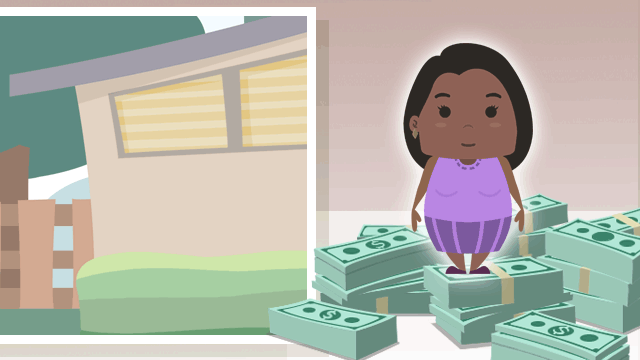Reverse Mortgage
Related Terms: HECM, Home Equity Conversion Mortgage
Similar to a traditional mortgage, a reverse mortgage uses your house as collateral for the loan, except in this case, your loan balance will grow because you aren’t making monthly payments. The loan does not have to be paid until the borrower dies, or moves out of the property.

Reverse mortgages are ideal for senior borrowers who have gathered a considerable amount of equity on their home. As you would imagine, life expectancy plays a big part for lenders in determining the value of the loan. Normally, the older you are and the lower loan balance you have, the more money you can expect from the lender in terms of a reverse mortgage. Many seniors opt for a reverse mortgage and borrow cash against the equity on their homes to supplement their income.
The Home Equity Conversion Mortgage (HECM) is the only reverse mortgage insured by the FHA, and available through FHA approved lenders. If the homeowner dies or moves out permanently (this is when the borrower has not lived in the house for 12 consecutive months) the lenders are repaid through the sale of the house. Since the loan is insured, the lender is reimbursed, should the sale fall short of the loan amount.
In cases where the borrower dies and has heirs, they will receive a letter from the lender about the mortgage. The heirs in this case have a few options. If the home exceeds the value of the loan balance, they can sell the property and keep the difference. Heirs can give the house to the lender if they choose not to keep it or if the balance owed is more than what it’s worth. They may even choose to keep the home and pay it off themselves, in which case the amount is no more than 95 percent of the appraised value.
The Home Equity Conversion Mortgage (HECM) is the only reverse mortgage insured by the FHA, and available through FHA approved lenders. If the homeowner dies or moves out permanently (this is when the borrower has not lived in the house for 12 consecutive months) the lenders are repaid through the sale of the house. Since the loan is insured, the lender is reimbursed, should the sale fall short of the loan amount.
In cases where the borrower dies and has heirs, they will receive a letter from the lender about the mortgage. The heirs in this case have a few options. If the home exceeds the value of the loan balance, they can sell the property and keep the difference. Heirs can give the house to the lender if they choose not to keep it or if the balance owed is more than what it’s worth. They may even choose to keep the home and pay it off themselves, in which case the amount is no more than 95 percent of the appraised value.

Do you know what's on your credit report?
Learn what your score means.





